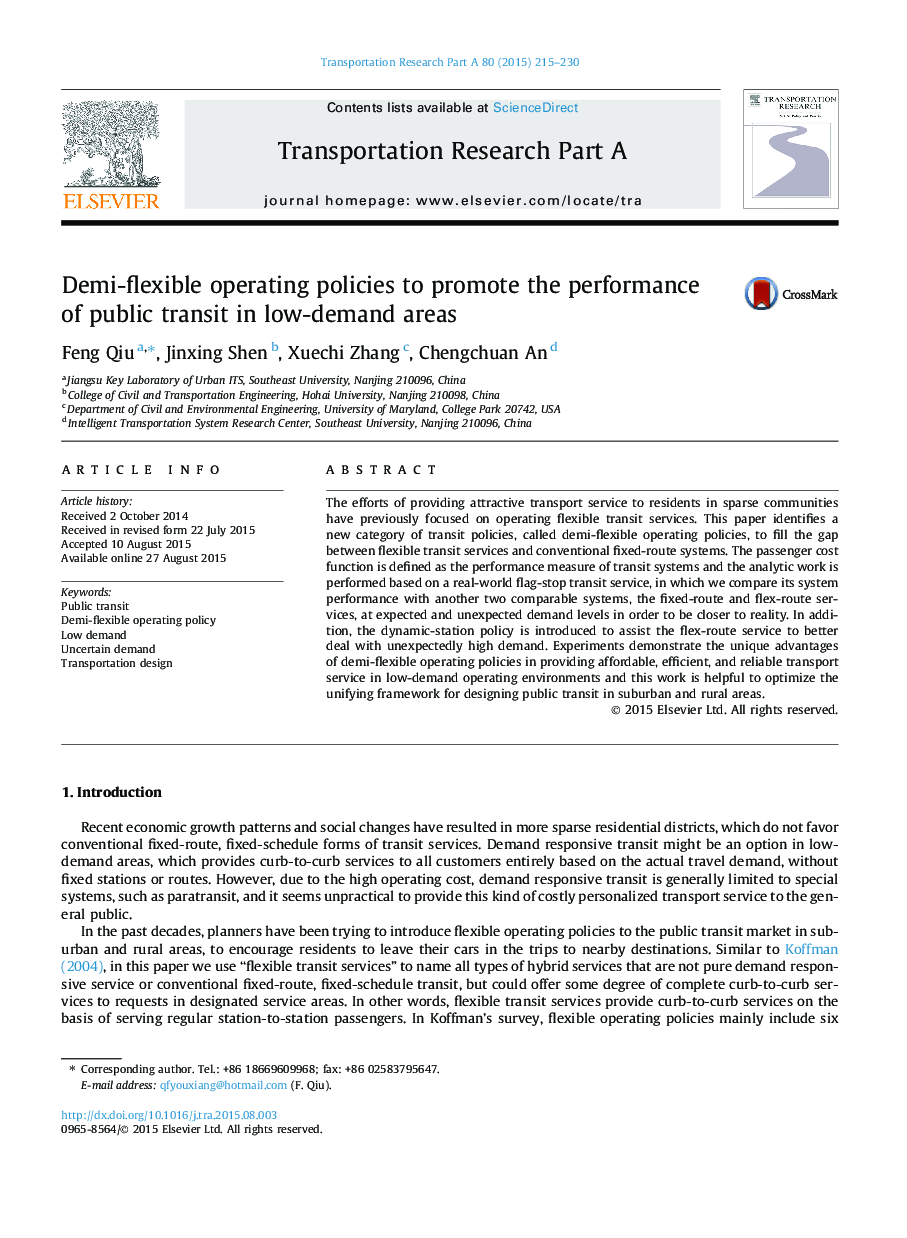| Article ID | Journal | Published Year | Pages | File Type |
|---|---|---|---|---|
| 6781186 | Transportation Research Part A: Policy and Practice | 2015 | 16 Pages |
Abstract
The efforts of providing attractive transport service to residents in sparse communities have previously focused on operating flexible transit services. This paper identifies a new category of transit policies, called demi-flexible operating policies, to fill the gap between flexible transit services and conventional fixed-route systems. The passenger cost function is defined as the performance measure of transit systems and the analytic work is performed based on a real-world flag-stop transit service, in which we compare its system performance with another two comparable systems, the fixed-route and flex-route services, at expected and unexpected demand levels in order to be closer to reality. In addition, the dynamic-station policy is introduced to assist the flex-route service to better deal with unexpectedly high demand. Experiments demonstrate the unique advantages of demi-flexible operating policies in providing affordable, efficient, and reliable transport service in low-demand operating environments and this work is helpful to optimize the unifying framework for designing public transit in suburban and rural areas.
Keywords
Related Topics
Physical Sciences and Engineering
Engineering
Civil and Structural Engineering
Authors
Feng Qiu, Jinxing Shen, Xuechi Zhang, Chengchuan An,
